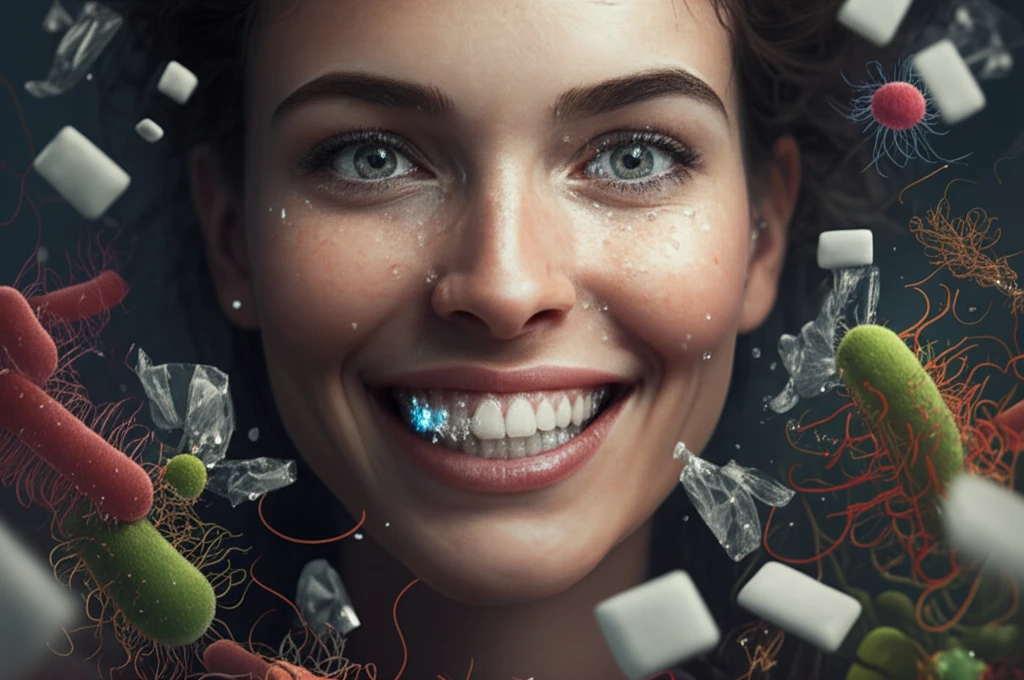
Sweet News for Your Smile: Can Xylitol Gum Really Boost Your Oral Health?
"Discover the surprising science behind xylitol-containing chewing gum and how it can help maintain a healthy mouth, even when you can't brush."
Maintaining good oral hygiene is a daily challenge. We brush, floss, and try to avoid sugary treats, but what happens when life gets in the way? Whether you're traveling, facing a busy day at work, or dealing with unexpected circumstances, sticking to your regular dental routine can be tough. That's where xylitol-containing chewing gum comes in as a surprisingly effective tool for supporting your oral health.
Xylitol, a naturally occurring sugar alcohol, is found in many products, including chewing gum. Unlike regular sugar, xylitol doesn't break down and feed harmful bacteria in your mouth. In fact, it does just the opposite! Research suggests that xylitol can actually help reduce the amount of bacteria in saliva, contributing to healthier teeth and gums.
A recent study published in the "Journal of Oral Science" investigated the short-term effects of xylitol-containing chewing gum on the oral microbiota. The results offer compelling insights into how this simple habit can impact your oral health, especially when you can't brush.
The Science Behind the Sweetness: How Xylitol Gum Works

The study, led by Kenji Takeuchi and colleagues, involved 70 healthy adult men who participated in a two-day training exercise. The participants were divided into two groups: one group chewed two pieces of xylitol-containing gum seven times a day, while the other group did not. Researchers collected saliva samples before and after the training period to analyze the composition of the oral microbiota.
- Reduces Bacterial Load: Xylitol helps decrease the total amount of harmful bacteria in your saliva.
- Maintains Microbial Balance: It doesn't disrupt the natural balance of your oral microbiota.
- Supports Oral Hygiene: Chewing xylitol gum can be a convenient way to maintain oral health when regular brushing isn't possible.
- Prevents Cavities: By inhibiting bacterial growth and polysaccharide production, xylitol helps prevent tooth decay.
A Sweet Conclusion: Integrating Xylitol Gum into Your Routine
While xylitol-containing chewing gum is not a substitute for regular brushing and flossing, it can be a valuable addition to your oral hygiene toolkit. It’s particularly useful in situations where you can’t maintain your usual routine. Chewing xylitol gum after meals or snacks can help reduce bacterial buildup and keep your mouth feeling fresh. Consider adding this simple habit to your daily life and enjoy the sweet benefits of a healthier smile!
